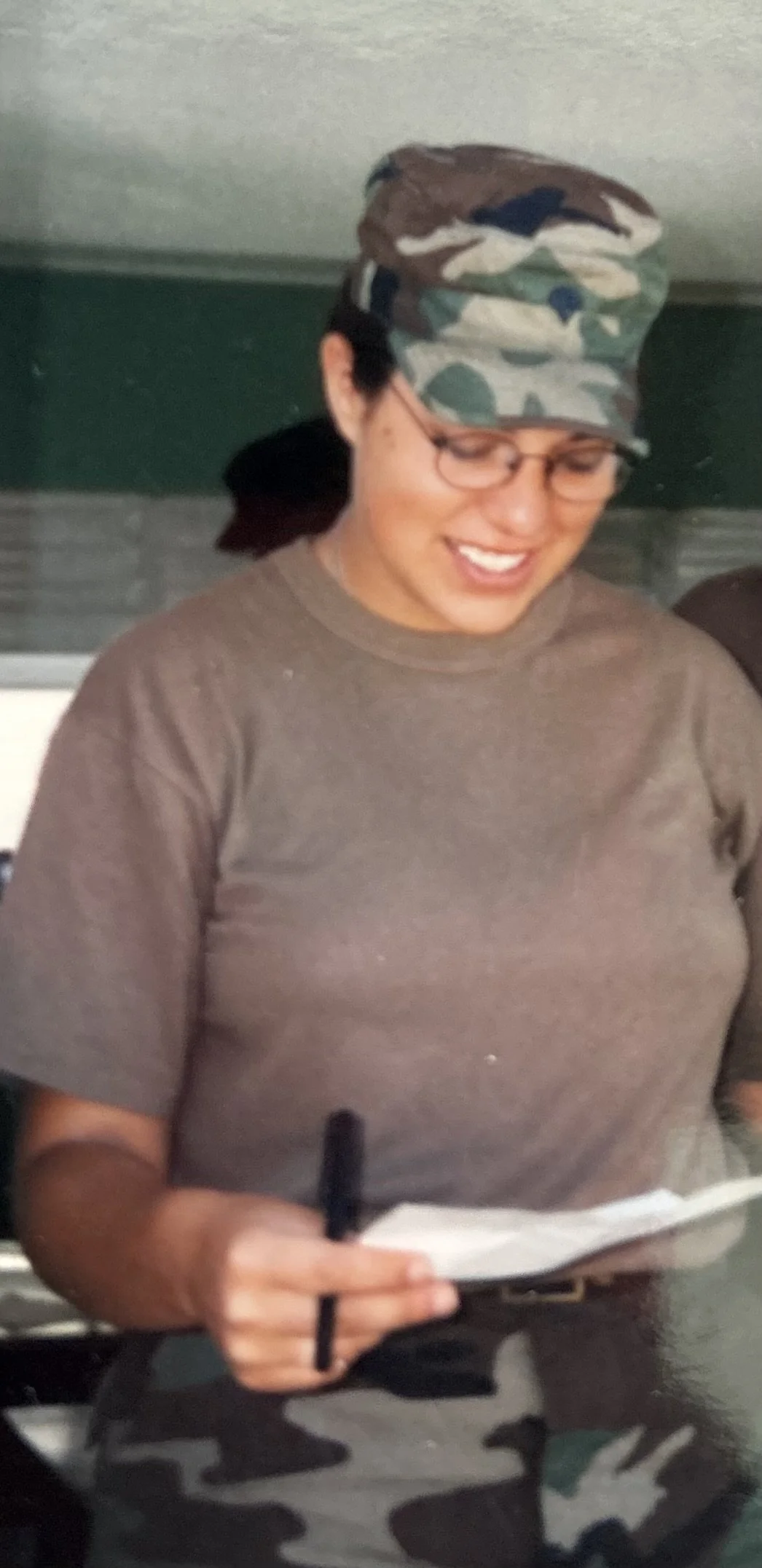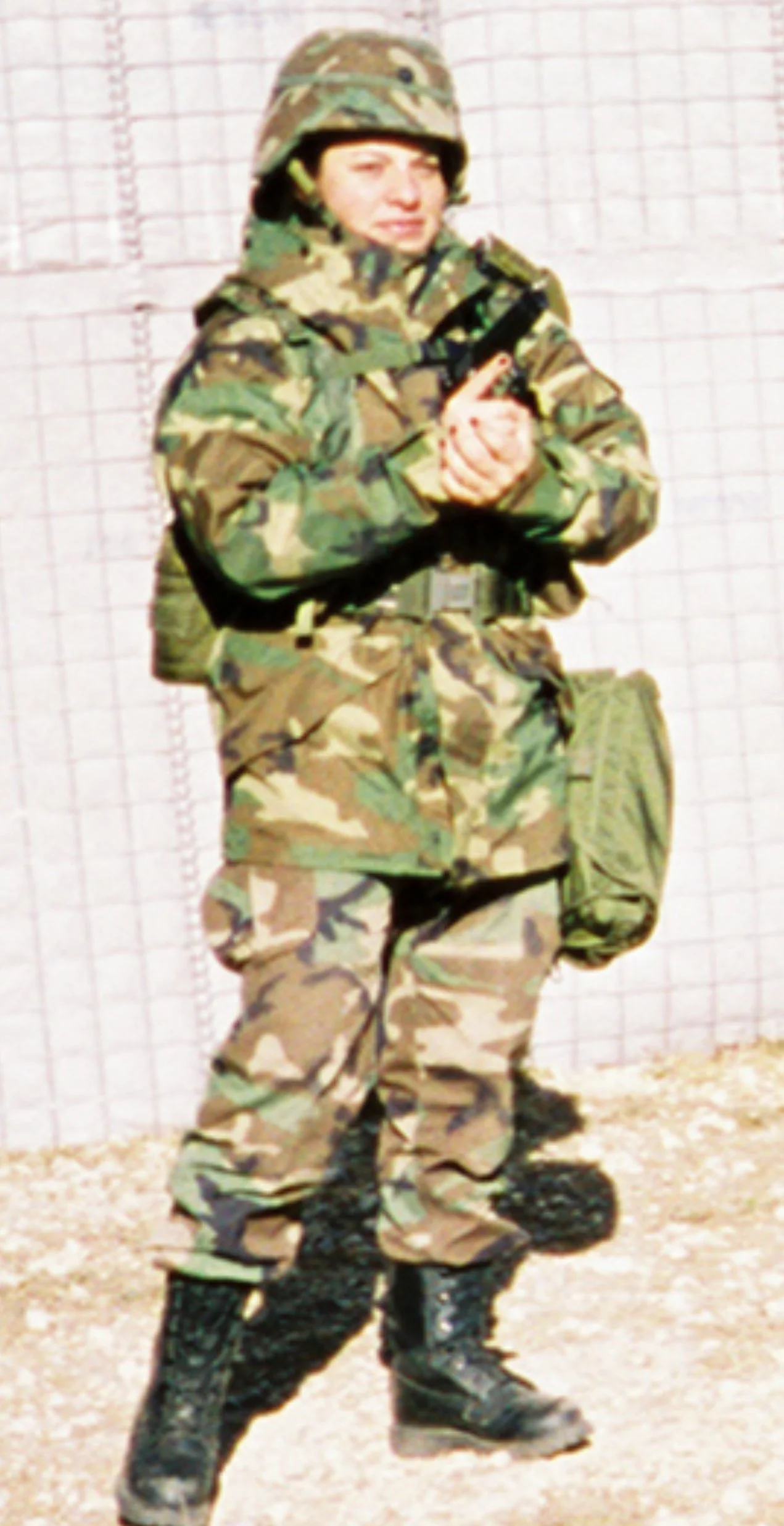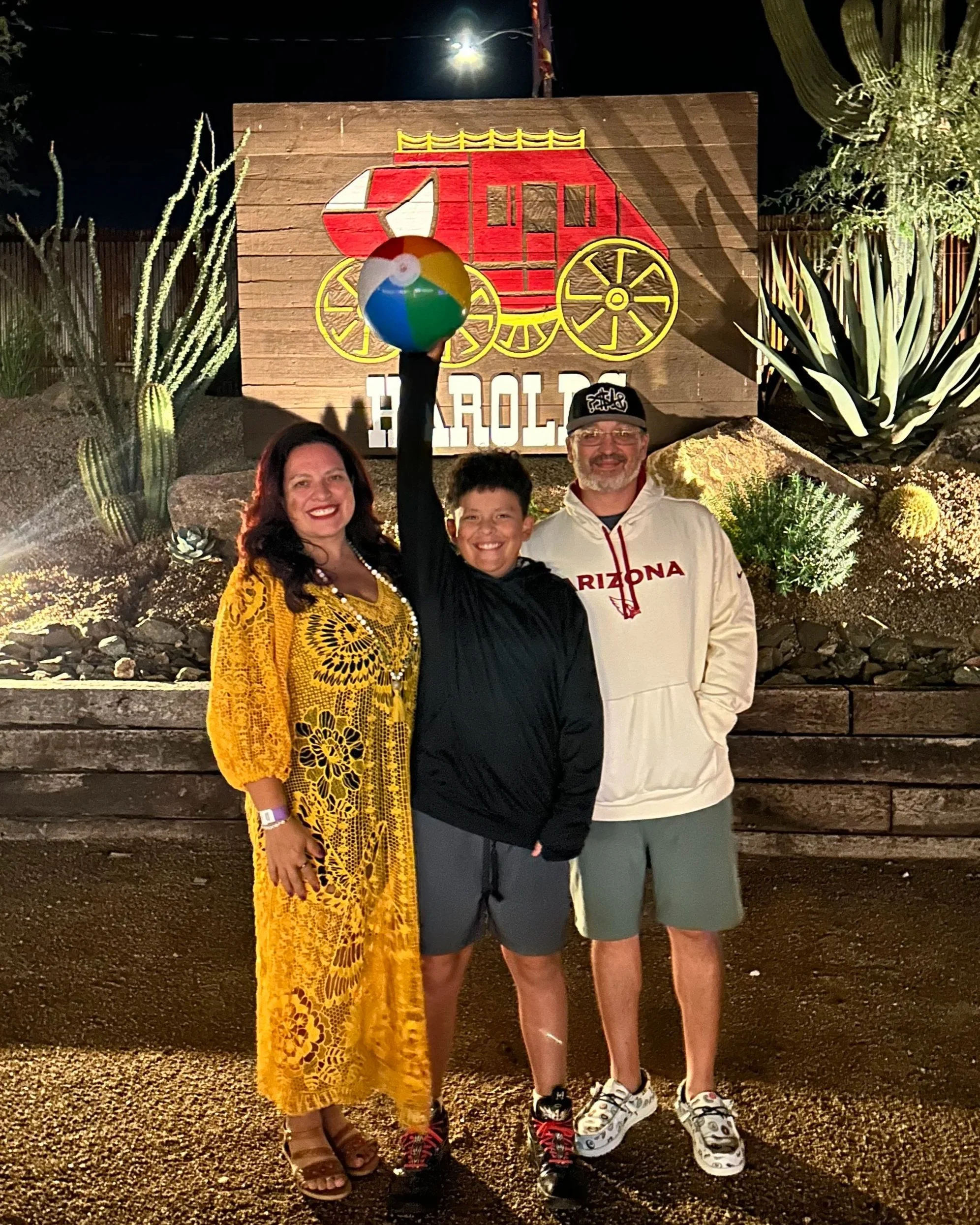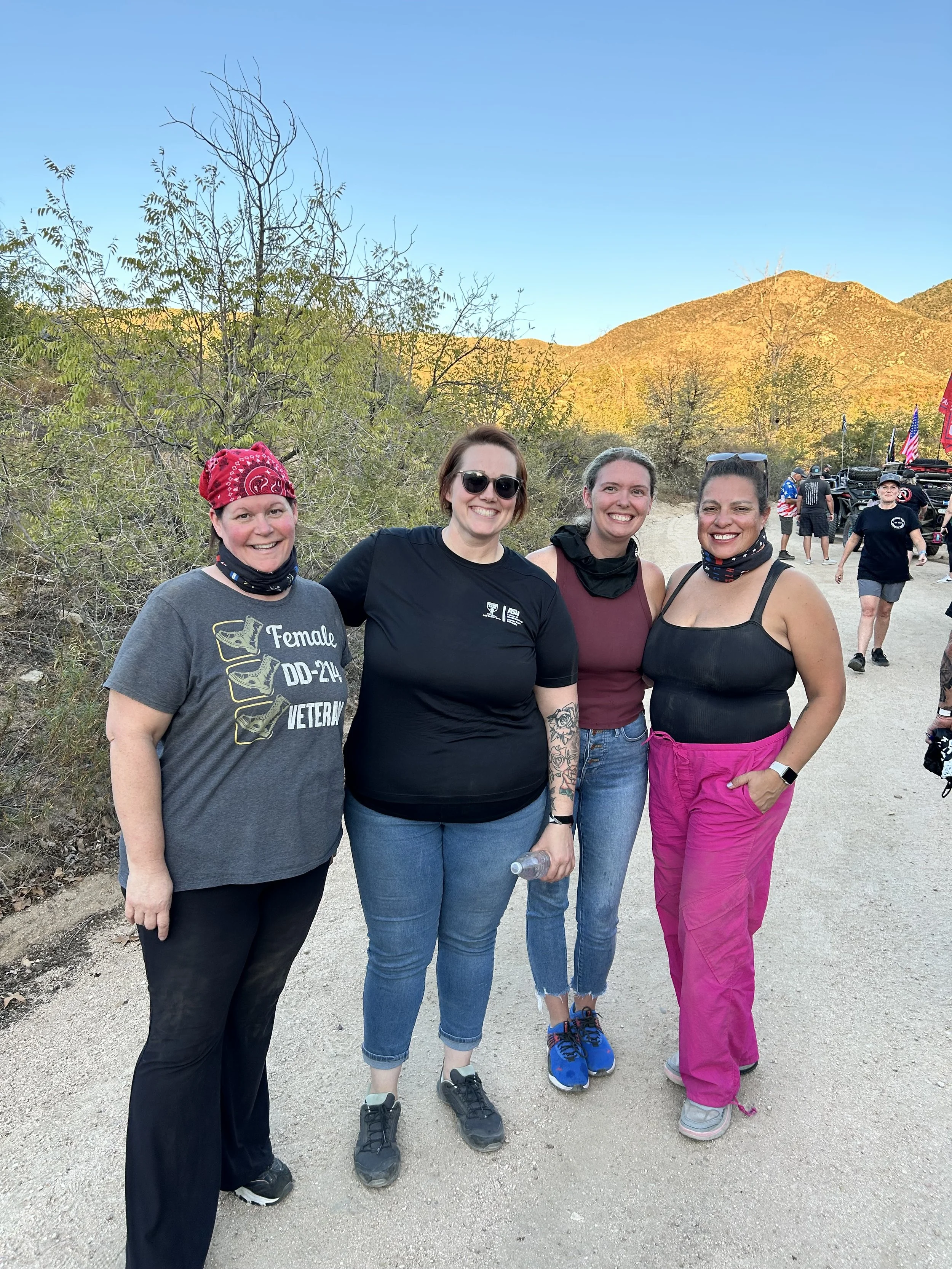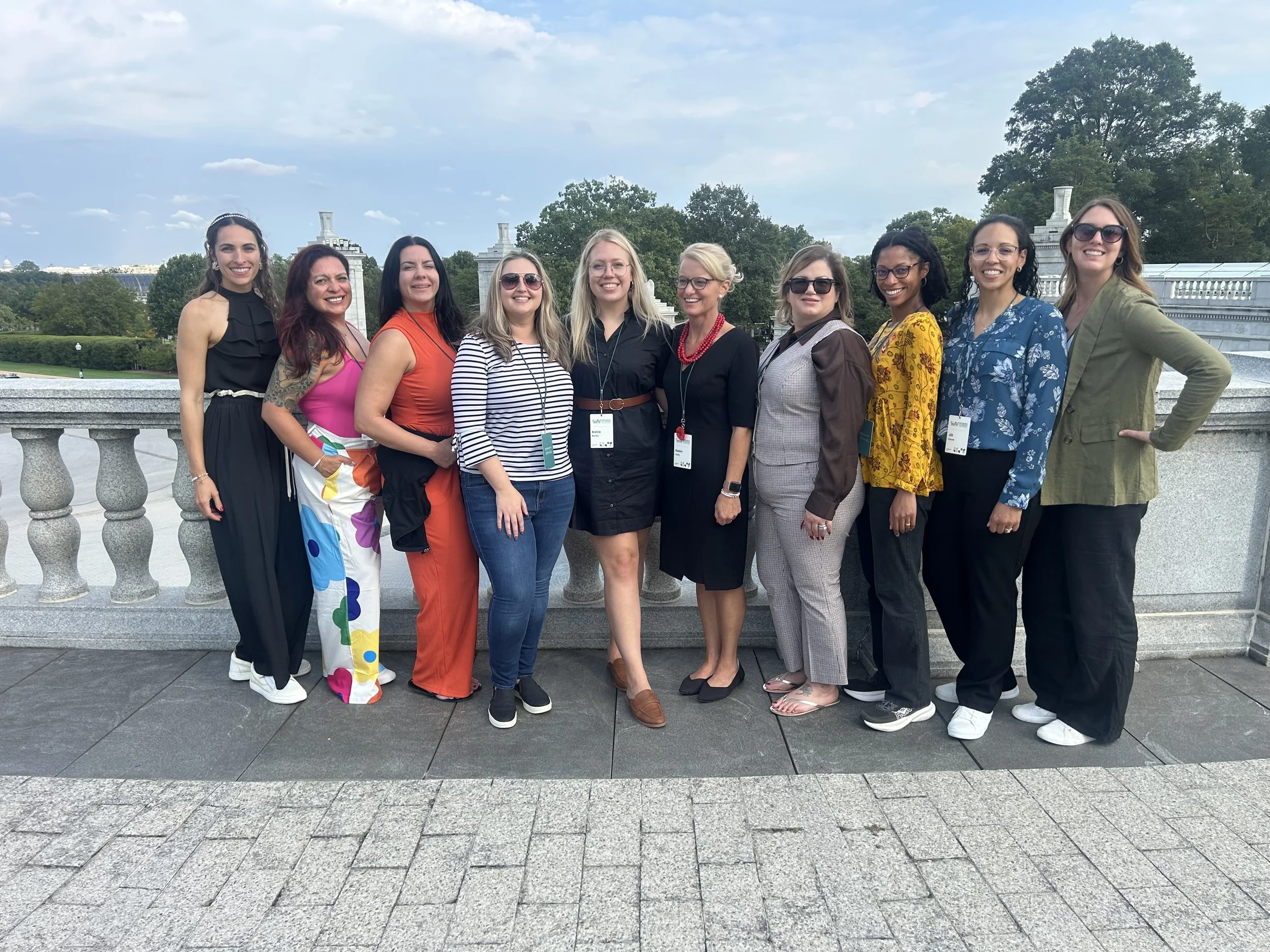🪖 Military Life Reflections: How My Service Shaped Me
“Resilience doesn’t mean you never fall; it means you rise stronger, again and again.” – Cynthia Prato
⚠️ A Note Before You Read
What I’m about to share has never been told in full before. I’ve given glimpses to my husband and family, but not the entire story. Please know: some parts may be triggering. You are not alone. If you or someone you know needs support, call or text 988 for the Suicide and Crisis Lifeline — available 24/7 and completely confidential.
✨ Where It All Began
Never in a million years did I think I’d end up in the military. Growing up, I wanted to follow in my grandfather’s footsteps and become a doctor. But life has a funny way of rerouting our best-laid plans.
I joined JROTC in high school, not out of burning ambition, but because my best friend said it was fun. Turns out, it was. I loved it and quickly climbed the ranks. By senior year, I was Battalion Executive Officer, second in command.
Even though I was accepted to multiple universities, I couldn’t afford tuition. A friend mentioned the Florida National Guard: two weeks a year, one weekend a month, and college covered. Perfect. So, I enlisted.
Some people doubted me, “Cynthia would never make it; she hates to sweat.”
They weren’t wrong, but I said, “Hold my cafecito.”
🪖 Basic Training: Finding My Strength
In 1998, I arrived at Fort Jackson, later training at Fort Huachuca to become an interrogator. I became platoon leader and learned what real leadership looked like, and what it didn’t.
My biggest challenge? Physical training. I was a lazy runner (still am), and that BMI chart haunted me like a bad ex. It didn’t matter that I could lead and perform; the military’s obsession with “numbers” overshadowed everything.
Even now, I remind my doctors that the BMI chart doesn’t define my worth or my health.
💔 When Leadership Fails You
During a training assignment, two senior sergeants began harassing me and another female soldier. After one publicly humiliated me about my weight, I reported them. I believed doing the right thing would protect me.
It didn’t.
My leadership dismissed it, blaming my “emotions” on my parents’ separation. Years later, that same sergeant was charged with child molestation. That’s when I learned how broken the system could be.
Women in uniform face unique battles, not just in combat, but in credibility.
🇺🇸 September 11 and Beyond
After 9/11, everything changed. I was assigned to patrol the Port of Miami, standing guard with my partner, both armed and armored.
One day, a tourist asked if we were actors. His wife apologized; I laughed it off. But it stayed with me. Our male counterparts weren’t mistaken for movie extras.
Later, I was deployed as part of Operation Enduring Freedom, stationed in Hungary, supporting soldiers from Bosnia. I handled safety reports for our unit while a Captain, who didn’t believe women belonged in the military, refused to sign off on any medals for me. Ironically, he was later investigated for falsifying his clearance.
💥 The Assault That Changed Everything
One night, after years of service and endless duty weekends, I finally went out to unwind. I trusted the people I was with. I had a few drinks. And someone I trusted raped me.
That night broke something inside of me. For 18 years, I carried that pain, quietly, shamefully, self-destructively.
Healing didn’t happen overnight. It took therapy, faith, boundaries, and self-compassion to find light again.
And I did.
💪 Lessons I’ve Carried Forward
🧠 Resilience:
I am the most resilient person I know. You can throw obstacles at me; I’ll find a way through, over, or around them.
🌟 Leadership:
I once told my therapist, “I wish I had the leader I needed back then.”
She looked at me and said, “Why can’t you be that leader now?”
And that changed everything.
💬 It’s Okay to Ask for Help:
After being failed by leadership, I swore I’d never ask for help again. But therapy reminded me, asking for help isn’t weakness; it’s wisdom.
❤️ My Support System
My husband didn’t know my full story at first. But he’s been my rock. He married me; quirks, flaws, trauma, and all (plus, my dad told him there were no take-backs 😅). His patience, love, and humor helped me rebuild my trust and my sense of self.
And I’ve found a tribe; women veterans who lift each other, who celebrate each other loudly, and who prove that healing and leadership can coexist.
📚 Honoring My Story, and Inspiring Others
Recently, I was interviewed for Imprints of Honor, a program where students preserve veteran stories and are inspired to live lives of integrity and service. My story will be written in a book and archived in the Library of Congress.
Talk about a full circle; reliving my journey, my story, with purpose and pride.
I also completed the Women Veteran Leadership Program (WVLP) with Beneath the Service. Sharing my truth wasn’t easy. But each time I tell it, it gets a little easier. During the program, we visited the Military Women’s Memorial, and it felt like an out-of-body experience.
Seeing the legacy of women in uniform, feeling the weight of their sacrifices, and realizing that I’m part of that story? Life-changing.
One moment that stayed with me forever: hearing Jessica Lynch share her incredible story of resilience after being captured in Iraq and losing her battle buddy Lori Piestewa. I was supposed to attend in person… but instead, I had been admitted into the hospital getting an emergency enema after bleeding internally from a routine colonoscopy, and the doctors had to go back in to check things out.
Still, hearing Jessica’s voice on Zoom, her strength, her story, it shook me to my core.
If that didn’t empower me to keep going, I don’t know what would.
That was the moment I knew:
My voice matters.
My story has power.
And I’m here, not just to survive, but to lead.
🕊 Final Reflection
I’ve been through hell and back, but I’m still standing. Stronger. Softer. More self-aware.
The Army taught me discipline.
The trauma taught me empathy.
The healing taught me purpose.
“I became the leader I once needed, and I’ll never stop fighting for those still finding their voice.” – Cynthia Prato
📣 Call to Action
💬 Have you ever faced a moment that reshaped your path?
Share your story in the comments or reach out privately; no one heals alone.
📚 Resources for Women Veterans
I’ve gathered some women veteran resources here.
If you’re in crisis, please call 911 or contact the 988 Lifeline. You’re not alone. Real help is available.
Military Women’s Memorial - Register HERstory - You don’t have to be a Veteran to register the story of another women veteran.
Imprints of Honor - Share Your Legacy
Virtual Female Veteran Support Circle - Register Here and use Referral Code: AZVETS
HEAL HER Art - Facebook Group
📌 Quick Note (Because We Keep It Real Here)
I’m not a therapist, psychologist, or doctor, and I don’t pretend to be. Everything I share is rooted in my lived experience. Please consult a licensed professional for personalized support.


